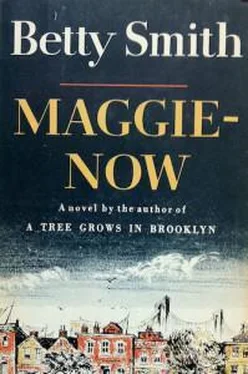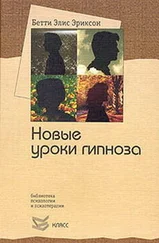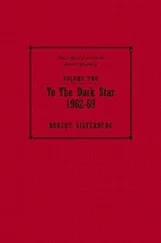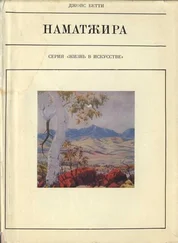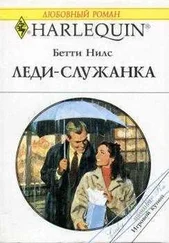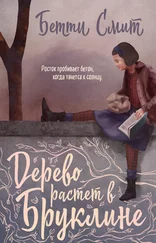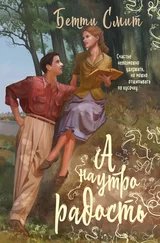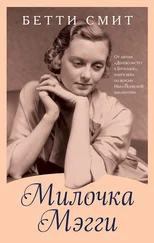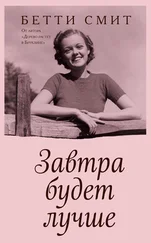Бетти Смит - Maggie-Now
Здесь есть возможность читать онлайн «Бетти Смит - Maggie-Now» весь текст электронной книги совершенно бесплатно (целиком полную версию без сокращений). В некоторых случаях можно слушать аудио, скачать через торрент в формате fb2 и присутствует краткое содержание. Жанр: Проза, на английском языке. Описание произведения, (предисловие) а так же отзывы посетителей доступны на портале библиотеки ЛибКат.
- Название:Maggie-Now
- Автор:
- Жанр:
- Год:неизвестен
- ISBN:нет данных
- Рейтинг книги:3 / 5. Голосов: 1
-
Избранное:Добавить в избранное
- Отзывы:
-
Ваша оценка:
- 60
- 1
- 2
- 3
- 4
- 5
Maggie-Now: краткое содержание, описание и аннотация
Предлагаем к чтению аннотацию, описание, краткое содержание или предисловие (зависит от того, что написал сам автор книги «Maggie-Now»). Если вы не нашли необходимую информацию о книге — напишите в комментариях, мы постараемся отыскать её.
Maggie-Now — читать онлайн бесплатно полную книгу (весь текст) целиком
Ниже представлен текст книги, разбитый по страницам. Система сохранения места последней прочитанной страницы, позволяет с удобством читать онлайн бесплатно книгу «Maggie-Now», без необходимости каждый раз заново искать на чём Вы остановились. Поставьте закладку, и сможете в любой момент перейти на страницу, на которой закончили чтение.
Интервал:
Закладка:
There was a little flurry of snow the third week in November. It didn't amount to much but Maggie-Now took up her nighttime vigil at the window waiting for Claude. She waited two nights and he didn't come. The third night, she sat there until midnight, decided he wasn't coming that night and went out into the kitchen.
She always prepared the babies' oatmeal before she went to bed at night, got it started, then left the saucepan on the back of the stove to simmer all night so that the cereal would be creamily well-done in the morning.
She heard the hall door open. She thought it was the tenant upstairs coming in late, then she thought of Claude! She stopped stirring the oatmeal, covered the saucepan and set it on the back of the stove. He walked into the kitchen.
"Oh, Claude! Claude!" She was in his arms.
"This is the first time you didn't run down the street to meet
~ 35i]
me. And I walked around the block three times…."
"I was going to watch for you again as soon as I had this oatmeal started."
"Oatmeal? I haven't had that since. ."
"Want some? It's good and hot."
"No!" he said sharply. "It reminds me. ." His voice trailed off.
He had brought her a small silver stiletto that had the word Mexico stamped on the handle; to be used as a letter opener, he said. She smiled. She didn't get many letters:
one a month, the electric bill; two a month in the summer when she used the gas plate for cooking; and one a year from the tax collector. Just the same it was a beautiful thing to have and to hold in her hand.
"I have to give you a coin for it," she said.
"You believe in that superstition that a coin must be given in return for a knife?"
"Yes. It's bad luck if you don't."
"Your luck is good. You gave me a coin some years back," he said. She knew he referred to the gold piece.
He had brought home a duck. She put it in the oven to roast and then went to sit on his lap. He patted her hip and then started to laugh.
"What's funny?" she asked. (As always, it was as if he'd been away only for the day.)
"You're funny," he said, "sitting here in your Chinese kimono and Indian moccasins, waving a Mexican dagger and roasting a Long Island duck." He kissed her long and hard; then said: "Tell me all you did while I was away."
"Well," she hesitated, "I went over to see Lottie. ."
Her voice trailed off.
"What else? "
"Annie came to see me. . that's about all, I guess."
He wondered what had happened. Usually, when he asked her what she'd been doing, news literally poured out of her.
"You've been up to something, Margaret. Have you been a good girl?" he asked lightly.
"Oh, I forgot to tell you!" She was all animation. "The tulips came out. And they were beautiful, Claude. Just beautiful!"
"Did you plant zinnias and marigolds and. ."
~ 352] "No. I didn't plant anything."
"You're an odd girl. Here you cook and sew and love children and enjoy keeping house and. ."
"What's odd about that? "
"It follows that you'd enjoy working in a garden; making things grow. But you don't, do you? "
"Why, no, I don't, Claude."
"Why? "
"Oh, I don't know. I guess I like flowers in pots. You can put them in different places. I love to see flowers in the florist shops. That's how I'm used to flowers, I guess.
If I had a lot of flowers in the yard, I wouldn't enjoy so much going to the cemetery and seeing Al the flowers on the street outside the flower stores. And in May, when Father Flynn's lilac bush is in full bloom, he invites me to sit on his bench a while and we have iced tea, and if I had a lilac bush in my yard then it wouldn't be so wonderful any more to see Father Flynn's lilacs and I would miss that."
"You'll always be a city girl, love. And now, speaking of bushes, stop beating around one and tell me exactly what you did while I was gone." Suddenly, she was tense in his arms. "What?" he asked.
"I thought I heard something."
"Your father?"
"He's at Mrs. O'Crawley's. Listen!" The sound again. It was the wail of a baby. She jumped to her feet. "He never cries. He must be wet and uncovered."
He jumped up too and grabbed her arms and shook her a little. "No!" he said in a high ecstatic voice the way people say "No" when they expect a sure "Yes" back.
"Claude?" she said. It was almost a whimper.
"And I wasn't with you when it happened! I am a bastard; a pig." His self-reproaches w ere terrible. He got down on his knees and put his arms about her legs and pressed his cheek against the silk of the kimono.
She stood listening with her head turned, the way he stood and listened for the voice in the wind on the day he left. She relaxed and breathed deeply. "There! He's gone back to sleep."
"I am nobody from nowhere," he said, his voice muffled against [353]
her kimono. "There is no one before me. But now one will come after me. A son. . my name, a continuation of me
. . me! Who is a continuation of no one."
It was very hard for her to tell him that he had no son;
that the child was one of her two foster children. He got up. His face was bone white.
"What have you done to me?" he asked in a reasoning voice.
"I don't know," she said, genuinely bewildered.
"I'll tell you," he said pleasantly. "All you did was tell the whole world that I could not get you pregnant." He was pleased when he saw her wince at the word. "All you did was tell the world that I couldn't support you and you had to take in bastards for pay."
"What world?" she asked. "Whose world?" The baby wailed again. She turned quickly and went out.
"You Goddamned peasant!" he hissed after her.
She came back carrying the baby. She pulled a chair close to the stove, spread her Icgs to make a large lap, and changed the baby's diaper. He looked on with distaste; even disgust. Mark called out, "Mama?"
querulously from the nursery. She got up, put the baby in Claude's arms and went to Mark.
Claude held the baby. No miracle happened. The feel of the helpless child in his arms did not bring on a surge of tenderness; his heart did not turn liver. The child, thumb in mouth, looked up at him with brown, unwavering eyes.
He looked down on the child and thought: IVhose spawn are you? The child's eyes blinked once and he took his thumb halfway out of his mouth and put it back again. But who am I to throw stones? he continued in his thoughts.
Whose spawn am I for that matter? Without his volition, his arm tightened convulsively about the child.
She came in leading rhe boy by the hand. "Claude," she said, "this is Mark."
Claude and the boy stared at each other. Neither said a word. If, thought Claude, she says, And Mark, this is Papa, I'll throw the one l'In holding rigl.,t in her face!
She said nothing more. She took the baby from him and took both children back to their cribs. When she returned, she spoke to him as though continuing a conversation.
[3s41 "And Claude, they are not bastards. Maybe they're orphans; maybe they're children that were not wanted by a mother. . Or a father. But they are not. . what you say. They are God's children. They are Catholic children."
"Sit down, Margaret," he said gently. She complied.
"Margaret, I want you to get a divorce and marry someone who will give you all the children you want."
"I can't, Claude."
Читать дальшеИнтервал:
Закладка:
Похожие книги на «Maggie-Now»
Представляем Вашему вниманию похожие книги на «Maggie-Now» списком для выбора. Мы отобрали схожую по названию и смыслу литературу в надежде предоставить читателям больше вариантов отыскать новые, интересные, ещё непрочитанные произведения.
Обсуждение, отзывы о книге «Maggie-Now» и просто собственные мнения читателей. Оставьте ваши комментарии, напишите, что Вы думаете о произведении, его смысле или главных героях. Укажите что конкретно понравилось, а что нет, и почему Вы так считаете.
